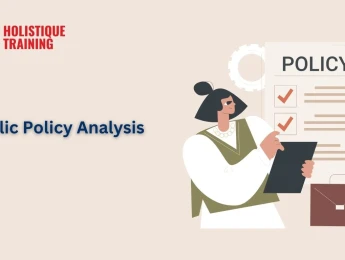This course aims to fortify participants' abilities in strategy formulation and execution, recognising the indispensable role of agility in today's dynamic business landscape. Effective leaders adeptly balance their involvement within and outside their organisations. This programme will teach participants to anticipate and strategically address forthcoming challenges and opportunities. By amalgamating robust analysis methodologies with established thinking tools, participants can empower their organisations to navigate the uncertainties and complexities of the contemporary world.
Upon completion of this course, participants will be able to:
- Articulate the foundational business model underpinning strategy.
- Integrate critical and creative thinking into strategic planning.
- Assess the impact of external changes on organisational dynamics.
- Recognise and leverage individual and team capabilities for strategic planning.
- Effectively engage and maintain support from stakeholders through communication.
- Cultivate productive partnerships conducive to strategy implementation.
- Craft succinct and compelling strategy statements.
- Appreciate how planning processes facilitate agile responses.
- Develop proficiency in aligning strategic objectives with operational goals.
This course caters to a diverse audience but is particularly beneficial for:
- Managers seeking to enhance their agility and strategic acumen.
- Technical professionals aiming to broaden their skill set.
- Non-executive personnel with aspirations for career advancement.
This course leverages a blend of adult learning techniques designed to enhance strategic thinking and agility. Participants will engage in interactive sessions, including real-world case studies and scenario analysis, to bridge theory and practical application. Group exercises will facilitate collaborative problem-solving, enabling participants to apply strategic concepts in simulated environments.
Role-playing activities will help participants practice formulating and communicating strategic plans, allowing them to receive immediate feedback on their approach and effectiveness. Through the use of strategic thinking tools and robust analysis methodologies, participants will refine their ability to anticipate and address future challenges, ensuring they can lead their organisations with agility and foresight.
Day 5 of each course is reserved for a Q&A session, which may occur off-site. For 10-day courses, this also applies to day 10
Section 1: Fundamentals of Strategy Development
- Clarifying strategic terminology and concepts.
- Conducting industry and environmental analysis.
- Establishing objectives and selecting strategic pathways.
- Ensuring alignment of strategies with organisational goals.
- Contingency planning and risk assessment.
- Understanding and addressing stakeholders' needs.
- Effective management and analysis of stakeholders.
Section 2: Decision-Making and Strategy Implementation
- Delegation strategies and decision-making frameworks.
- Formulating strategic plans to generate value.
- Implementing VUCA Prime principles for adaptability.
Section 3: Communication Strategies
- Interpersonal and organisational communication techniques.
- Mitigating communication barriers and noise.
- Enhancing persuasion and negotiation skills for effective communication.
Section 4: Monitoring and Control Mechanisms
- Utilising strategy maps for visualising strategic objectives.
- Evaluating strategic components to ensure success.
- Information management, monitoring, and control mechanisms.
- Recognition and incentivisation of strategic achievements.
Section 5: Organisational Dynamics and Innovation
- Understanding the influence of organisational structure and culture.
- Cultivating a culture of learning and continuous improvement.
- Distinguishing between continuous improvement and innovation.
- Fostering a culture conducive to innovation and creative problem-solving.
- Addressing cultural attitudes that impede progress.
Upon successful completion of this training course, delegates will be awarded a Holistique Training Certificate of Completion. For those who attend and complete the online training course, a Holistique Training e-Certificate will be provided.
Holistique Training Certificates are accredited by the British Assessment Council (BAC) and The CPD Certification Service (CPD), and are certified under ISO 9001, ISO 21001, and ISO 29993 standards.
CPD credits for this course are granted by our Certificates and will be reflected on the Holistique Training Certificate of Completion. In accordance with the standards of The CPD Certification Service, one CPD credit is awarded per hour of course attendance. A maximum of 50 CPD credits can be claimed for any single course we currently offer.
- Course Code MG2-143
- Course Format Classroom, Online,
- Duration 5 days














